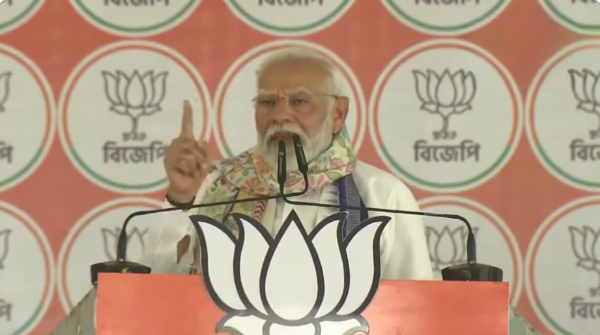As political tensions escalate in West Bengal following Prime Minister Narendra Modi’s recent accusations of divisive politics, civil society organizations are urging for unity and dialogue to prevail over polarization.
PM Modi’s remarks, made during a public rally, have reignited debates on the state of communal harmony and political discourse in West Bengal. His criticism of the opposition for allegedly prioritizing electoral gains over societal cohesion has sparked reactions from various quarters.
Civil society groups, recognizing the importance of fostering unity in a diverse state like West Bengal, have voiced concerns over the increasing polarization. They emphasize the need for political leaders to prioritize the welfare of citizens over partisan interests and to engage in constructive dialogue.
“We are witnessing a dangerous trend of identity politics overshadowing the real issues facing our state,” remarked a spokesperson for a local NGO. “It’s imperative for leaders across the political spectrum to set aside their differences and work towards the common good of all citizens.”
The recent exchange between the Prime Minister and opposition parties has further underscored the need for a shift in political rhetoric towards issues-based governance. Civil society activists are calling for leaders to address pressing concerns such as healthcare, education, and economic development, rather than engaging in divisive rhetoric.
“We cannot afford to let political discord overshadow the urgent needs of our communities,” stated a member of a youth organization. “It’s time for leaders to demonstrate leadership by promoting unity and inclusivity.”
As West Bengal prepares for upcoming elections amidst a charged political atmosphere, civil society organizations are stepping up efforts to promote dialogue and understanding among different segments of society. They believe that by fostering unity and cooperation, the state can overcome its challenges and embark on a path of sustainable development and progress.
In the face of political polarization, the voices of civil society serve as a beacon of hope, advocating for a future where the collective welfare of all citizens takes precedence over divisive politics.



